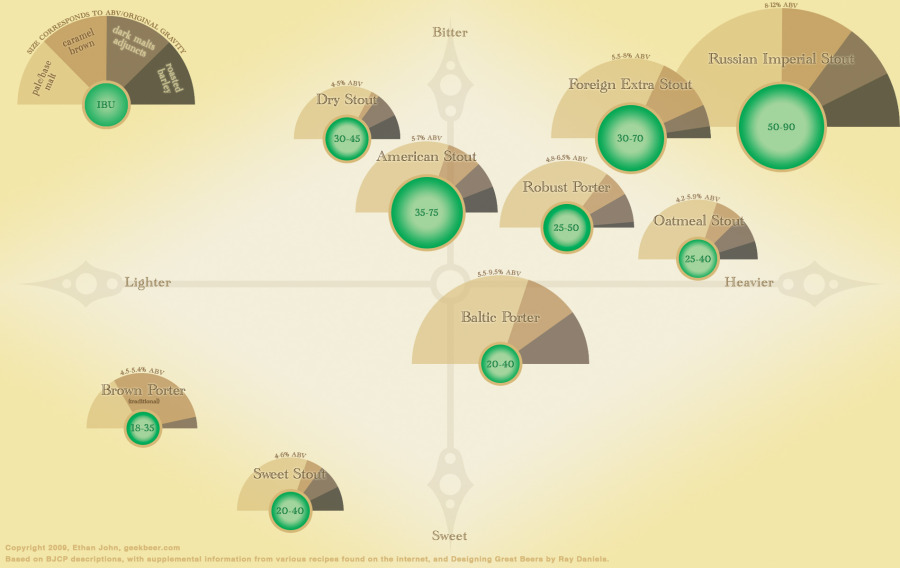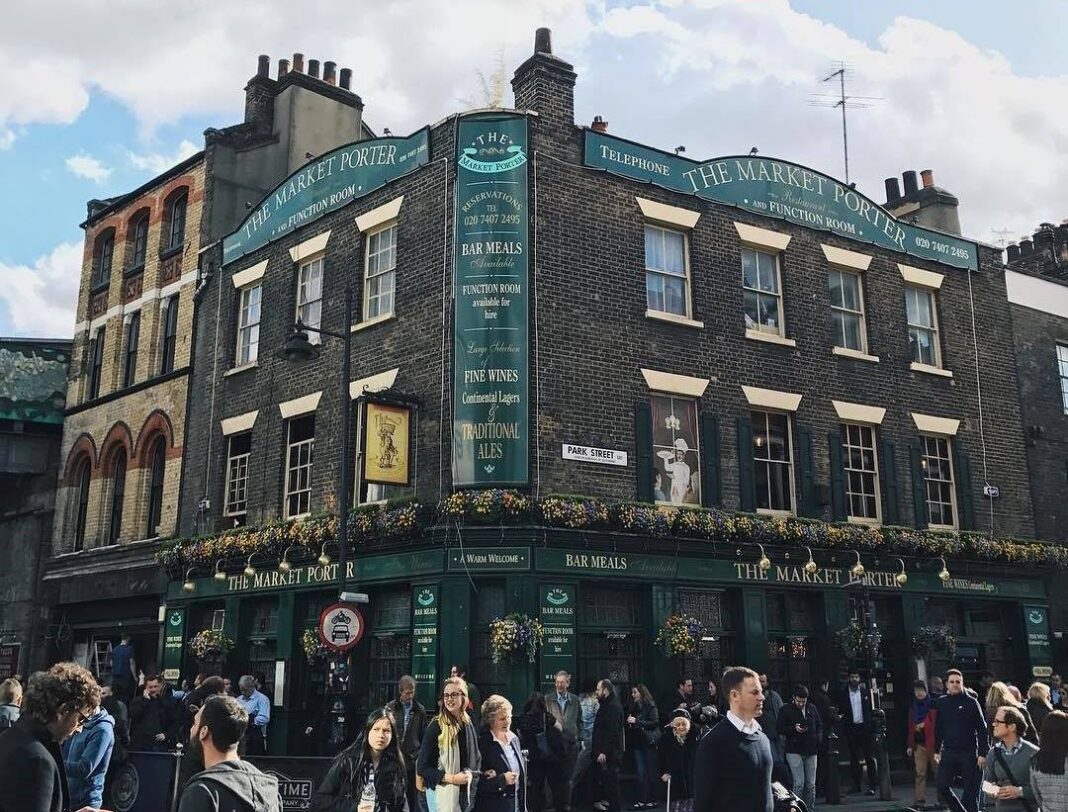
We could stay up drinking until morning, all the while arguing about the differences (if any) between Porter and Stout, but the only point of agreement might be this.
Entire quickly became popular as the workingman’s pint of choice, and as several historians seem to think, became known as “porter” because it was a particular favorite of the porters who labored at the local markets and also delivered the product to the pubs.
Historically, a porter is a person employed to carry burdens, as at a market. In the UK, what makes a “market pub” noteworthy is its exception with respect to allowable opening hours.
Conversely, in my home state of Indiana, the consumption rules are uniformly favorable. Any bar can be a “market bar,” though not so many choose this path.
Sunday through Saturday, the legal hours for the dispensing of alcoholic beverages are 7:00AM to 3:00AM (IC 7.1-3-1-14).
Retailer permittees may allow the consumption of alcoholic beverages for a period of thirty minutes after the legal dispensing hours only if the alcoholic beverages to be consumed were purchased and received by the consumer before the applicable times (see above hours) to stop the dispensing of alcoholic beverages. After this thirty minute period, all containers that have previously had alcoholic beverages in them must be cleared from the tables, counters, bars, etc. (905 IAC 1-10-1)
Markets and their laboring porters; Porter as an ale brewed by the likes of George Washington. New Albany once had a public market on … yes, Market Street. Imagine that. If I win the lottery, which is to say if I ever get around to purchasing lottery tickets, I’ll select a random Market Street somewhere nearby and bring this greatest of all English heritage pub names to the area: The Market Porter.
Pints at dawn: is this last call for London’s market pubs? by Jessica Furseth (The Guardian)
Only a few pubs are still open to workers first thing in the morning – a throwback to when markets were vital to inner city life. Now these traditional early houses are being kept alive by a different type of drinker.
… Four men are sat by the front door, getting a couple of pints before heading home to Southampton after a 12 hour shift on the nearby Crossrail construction. “A few of us try and come here once a week. This place is great for people like us, it’s our evening,” says Steve Webb, one of the workers.
Early houses came about due to a quirk in Britain’s alcohol licensing laws. Historically, all pubs would serve from first light, before this was stopped in the first world war because it was seen to hamper the war effort. But an exception was made for market pubs.
“Market business was often conducted in the pub. You’d go have a look at someone’s cattle or sheep, and then go into the pub and strike the deal with a drink,” says Martyn Cornell, a historian specialising in beer. “It was almost a commercial necessity to keep these places open, so market business could be carried out.”
Granted, the article was written prior to the ravages of the pandemic. Gastro Obscura recently republished a piece from 2018, which treads similar ground as the preceding.
The Market Porter by Borough Market is one of London’s last traditional pubs that is open at this early morning hour. The others—The Hope and the Fox and Anchor—are a little north of the river, by Smithfield Market. These three holdouts are the only historic London pubs left where the almost-gone tradition of having a beer with breakfast is alive and well.
I just checked, and the tradition of early morning hours remains alive at only two of the three pubs mentioned. The Hope now opens at noon, but Market Porter and the Fox and Anchor still will let you inside at 6:00 a.m. and 7:00 a.m., respectively, on weekdays.
It’s the very epitome of hospitality: Sausage and mash with onion gravy and a pint of Porter to greet the sun. The burdens we carry nowadays are more psychological than physical, but they’re no less deserving of attention.



















 Roger Baylor is an entrepreneur, educator, and innovator with 40 years of beer business experience in metropolitan Louisville as a bartender, package store clerk, brewery owner, restaurateur, writer, traveler, polemicist, homebrewing club founder, tour operator and all-purpose contrarian.
Roger Baylor is an entrepreneur, educator, and innovator with 40 years of beer business experience in metropolitan Louisville as a bartender, package store clerk, brewery owner, restaurateur, writer, traveler, polemicist, homebrewing club founder, tour operator and all-purpose contrarian.


